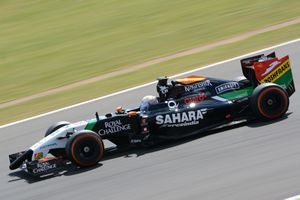|
By accessing or using The Crittenden Automotive Library™/CarsAndRacingStuff.com, you signify your agreement with the Terms of Use on our Legal Information page. Our Privacy Policy is also available there. |

Racing To The Future – What Happens When Sports Cars Go All Electric?
|
|---|
|
|
Racing To The Future – What Happens When Sports Cars Go All Electric?
Lucy Wyndham
25 November 2020
Innovation and the automobile industry go hand in hand – but does it always change things for the better? There’s no doubt that the transportation industry has a significant impact on emissions: data from the United States Environmental Protection Agency suggests that
28% of total greenhouses gases come from the industry – and racing cars, well known for their powerful engines, are no exception. So will the racing cars of the future be all electric, or are we gliding smoothly towards the end of an era?
Why go electric anyway?
There’s no doubt that the use of electric vehicles is on the rise. In fact, electric cars have been around since the early days of the automobile, but the ‘racing’ back then was limited to much lower speeds, and limited to those who could afford a vehicle in the first place. In fact, 28% of all cars produced in 1900 were electric, according to the American Census – and it was only when the cost of gas powered cars came down to a level that made motoring accessible to the masses that electric powered vehicles became less sought after and produced. The benefits of lack of smell, reduced vibration and a smoother, quieter ride were overtaken by the benefits of cost reduction, longer ranges and higher speeds.
Following the introduction of the Clean Air Act in 1970, electric powered automobiles have experienced a steady resurgence, most notably, in racing terms, with the launch of the Tesla Roadster –
although its high costs prevented all but the fortunate few from investing in one. With Formula E now in its 6th season, it’s clear that electric racing cars can and do exist – and what’s more, they’re boasting improved features (such as traction control and anti-lock brakes) and enhanced performance, which may one day overtake the abilities of the gas-powered car. What’s more, electric vehicles offer the opportunities for reduced mass, decreasing the weight without sacrificing strength, and consequently increasing speed and efficiency.
Making some noise
Electric cars are often known for their stealth, and many see noise as a big part of racing. Whilst it’s true that electric racing cars don’t offer the same rousing roar as most modern racing vehicles,
there are some distinct benefits arising from that fact. On top of the reduction in fuel costs and emissions, easy access to charging infrastructure, and access to federal tax credits for using an electric vehicle, for example, many routes and cities that were previously off-limits for racing may now become accessible for events, due to reduced air and noise pollution caused by electric cars. The advanced technology integrated in electric vehicles also allows for more precise control and monitoring, meaning the
city streets will be safer too.
It’s true that electric cars have their limits and that the racing car of the future is likely to be significantly different to the racing cars of today – but just like every area of life, technology, innovation and understanding in the automobile industry means adapting to change and enjoying the benefits rather than mourning losses. As technology becomes faster, more powerful, and more adaptive, so too will racing, and there are sure to be exciting times ahead.


















